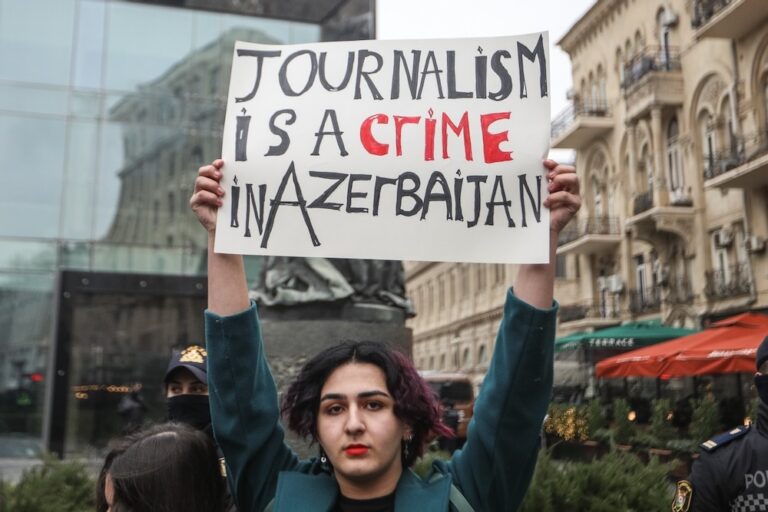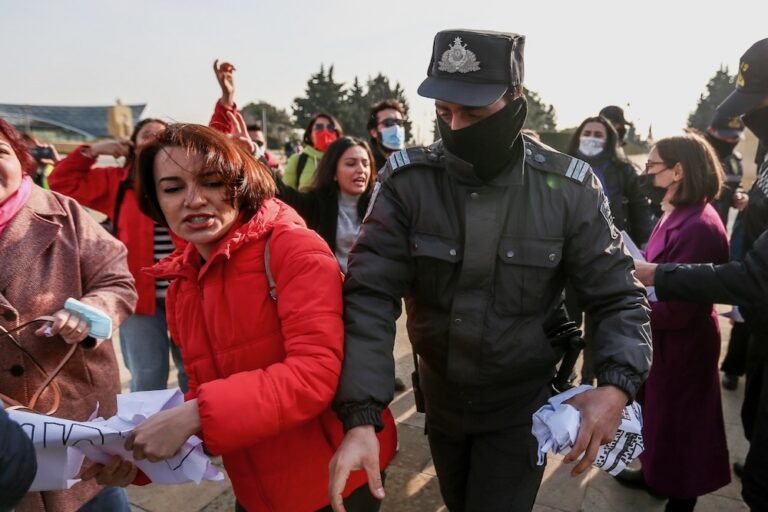(IRFS/IFEX) – Anar Niftaliyev (also known as Mahmudoglu), the author of “One Lifetime Struggle”, has been declared a “wanted person”. Niftaliyev told the Institute for Reporters’ Freedom and Safety (IRFS) that this decision was made because he did not give the court his copies of “One Lifetime Struggle”. The book “One Lifetime Struggle” was published […]
(IRFS/IFEX) – Anar Niftaliyev (also known as Mahmudoglu), the author of “One Lifetime Struggle”, has been declared a “wanted person”. Niftaliyev told the Institute for Reporters’ Freedom and Safety (IRFS) that this decision was made because he did not give the court his copies of “One Lifetime Struggle”.
The book “One Lifetime Struggle” was published in 2006. After its publication however, the National Academy of Science Folklore appealed to the courts with a lawsuit claiming the book was defamatory. In March 2008, the Sabayil District Court issued a decision calling for all copies of the book to be destroyed. According to the court decision, Niftaliyev was to present the books for destruction. In July, the Appellate Court rejected an appeal by Niftaliyev.
According to Niftaliyev, after the court issued its decision, court executors conducted a search at the address where he is officially registered. However, because they did not find any books there, they declared Niftaliyev a wanted person. “A court executor named Khanhuseyn called me and said that I have been a wanted person since 22 September,” the author said.
Niftaliyev plans to appeal to Azerbaijan’s Supreme Court and the European Court of Human Rights regarding the case.
IRFS contacted the court executor named Khanhuseyn. He said that the author was declared a wanted person because he does not live at the address indicated on his passport. He also said the decision was presented to the Garadagh Region Police Department. “We issued a decision for the defendant in this civil case to be declared a wanted person,” said Khanhuseyn.
Media Rights Institute Director Rashid Hajili told IRFS that court executors do not have the authority to declare anyone a wanted person. “Court executors are only able to write up a protocol to determine someone’s location and present this to a law enforcement agency,” said Hajili. “The agency must then take steps to determine the person’s location.”
Updates the Mahmudoglu case: http://ifex.org/en/content/view/full/89884


